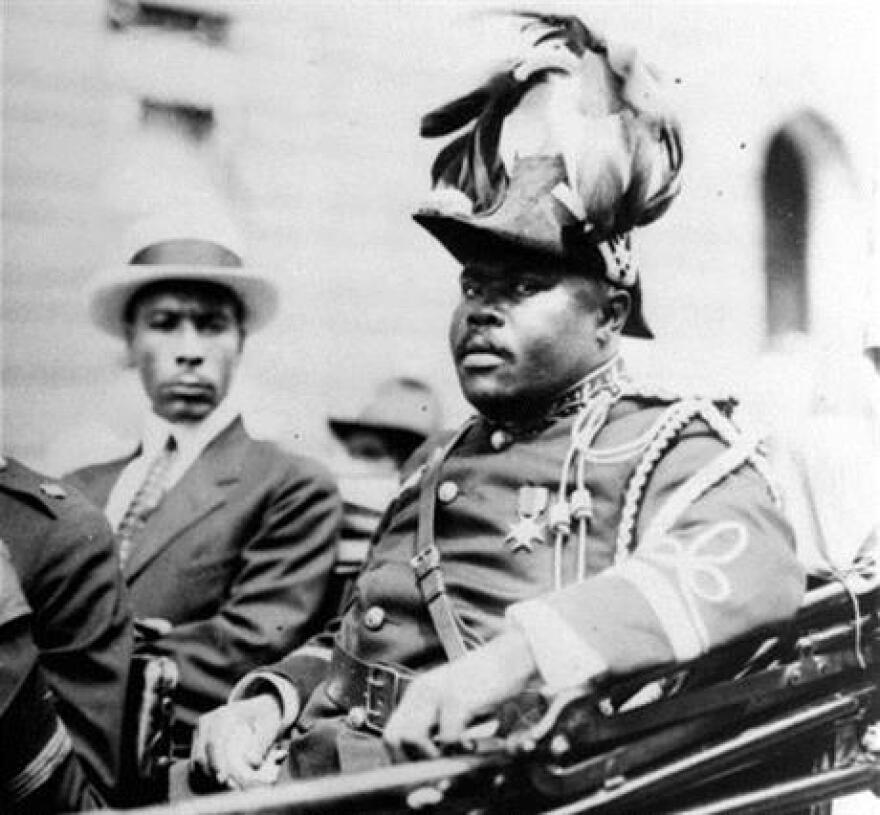Most civil rights experts will tell you this: Before Martin Luther King Jr., before Malcolm X, before Nelson Mandela – there was Marcus Garvey, the Jamaican-born black empowerment leader who died in 1940.
“Marcus Garvey was before his time," says Niyala Harrison, a Jamaican-American attorney in Miami and president-elect of the Miami-based Caribbean Bar Association.
“He was speaking about things that had never been spoken about before when we’re talking about self-determination and the advancement of black and colored people.”
So Harrison is disappointed that Barack Obama – the first black U.S. president – didn’t grant Garvey a posthumous pardon before leaving office last week.
RELATED:Is Jamaica's Election Upset Good or Bad for Its Debt Crisis - and the Caribbean's?
Garvey was convicted in the U.S. in 1923 for mail fraud. His sentence was commuted in 1927, but he was deported back to Jamaica. Since then supporters have urged his exoneration because, they say, his trial was racially motivated. FBI documents all but acknowledge that.
“It was a political witch hunt with absolutely no evidence,” says Garvey's son, Dr. Julius Garvey, a vascular surgeon on Long Island, New York.
This was definitely the appropriate time for a pardon, because all of the freedom movements that took place in the United States and in the Caribbean and in Africa owe their genesis to Marcus Garvey. – Julius Garvey
“He’s still being stained in the United States, so it’s important to clear that from his name. It’s a slur that needs to be removed.”
This month Julius Garvey donated his father’s Jamaican National Hero medal to a museum in Kingston. Jamaica, in fact, chose Marcus Garvey as its first National Hero after the country won independence from Britain in 1962.
Marcus Garvey wasn’t the first black civil rights leader. But he was arguably the first to focus on black pride and self-reliance. The organizations he founded in the early 20th century, such as the African Communities League, crusaded for everything from black entrepreneurship to the pan-African struggle against colonial rule.
After World War I he emigrated to New York and founded the Black Star shipping line to help promote black business in the U.S. and abroad – and ferry black people who wanted to move to Africa across the Atlantic. In his later years he lived in London, where he died.
“He’s a worldwide figure," says Julius Garvey. "He was dealing with the problems of African people on the continent and in the diaspora.”
Advocates say a pardon for Marcus Garvey would have raised his profile among civil rights icons. And that, they argue, could have given the civil rights movement a boost today – at a moment when Donald Trump’s presidency makes its future feel uncertain.
THOUSANDS PETITION
“This is definitely the appropriate time, because all of the freedom movements that took place in the United States and in the Caribbean and in Africa owe their genesis to Marcus Garvey," says Julius Garvey.
"Martin Luther King said Marcus Garvey was the first that mobilized millions of African-Americans.”
So if all that’s true, why didn’t Obama pardon him? A number of U.S. senators and congressmen lobbied for it, as did Jamaican prime ministers. Thousands of people signed petitions for it.
“I don’t know," says Julius Garvey. "I can’t get into his mind.”

Obama didn’t give a reason. He did issue one of the lowest numbers of pardons of any president.
But there may have been other factors. Marcus Garvey could be a controversial figure. He had feuds with other early 20th-century civil rights leaders like W.E.B. Du Bois, and he was often accused of promoting racial separation. He also made anti-Semitic remarks after his 1923 trial.
Harrison of the Caribbean Bar Association feels something else played a role in Obama’s decision.
"It could be that President Obama simply doesn't see a need for it," she says.
That's perhaps because outside of Caribbean enclaves like the one in Miami, Marcus Garvey is far removed from the modern American consciousness. Pardoning him, as a result, just wasn’t that politically urgent.
"But I grew up in a Rastafarian Jamaican household," Harrison adds. "So Marcus Garvey was always part of what I learned as a child – and he was a part of what shaped the United States’ civil rights movement.”
So advocates say they’ll keep working to clear Marcus Garvey’s name – starting with a documentary of his life and work that began production last month. The working title is "Marcus Garvey: A Son's Story."
“There’s an old African proverb about the tale of the hunt: the hunter's always telling the story," says the documentary's Jamaican-American director, Roy Anderson, who has partnered with Julius Garvey for the project.
"And I’ve said, now it’s time for the lion to tell the story.”
Anderson, who lives in New Jersey, is a descendant of the leaders of an 18th-century Jamaican slave revolt known as the Maroons. And he too is disappointed by Obama’s decision.
“Without Marcus Garvey," he says, "there may not have been a Barack Obama.”
But that’s now left for U.S. presidents after Obama to decide.



